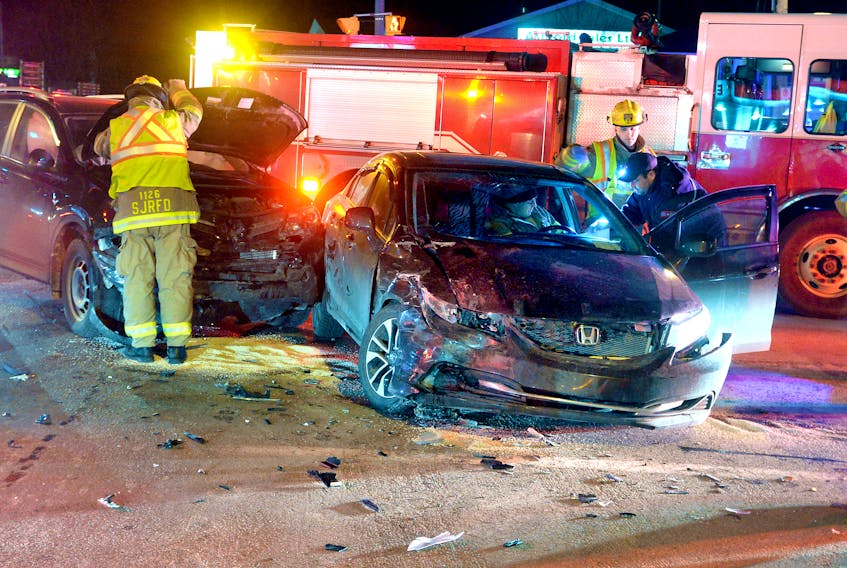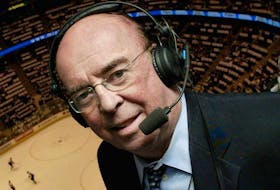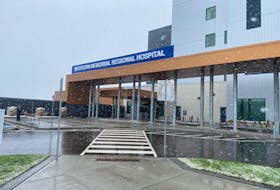If the Government of Newfoundland and Labrador was to implement a cap on compensation for pain and suffering as proposed by the insurance industry, innocent people who receive life-altering injuries in an automobile accident would have their right to fair compensation taken away, a St. John’s lawyer says.
Valerie Hynes, partner in the law firm Roebothan McKay Marshall, was responding to comments in Friday’s Telegram by Don Forgeron, president and CEO of the Insurance Bureau of Canada (IBC).
Forgeron said Newfoundland and Labrador is the only Canadian province that hasn’t imposed some type of restriction on pain and suffering awards for minor injuries, and that is the reason people in the province pay 40 per cent more for auto insurance than the rest of Atlantic Canada.
IBC hopes the province — following a government-ordered review of auto insurance rates currently underway — will introduce measures to bring premiums and claims costs down. Nova Scotia, New Brunswick and P.E.I. all have a cap on compensation for minor injuries.
The Newfoundland and Labrador government has engaged the Public Utilities Board (PUB) to do a closed-claims study into private passenger automobile insurance and to make recommendations on possible options to contain costs. Legislative changes are expected to be enacted this fall.
Hynes said, however, the cap on compensation in the Maritime provinces is not working for automobile accident victims.
“What I find the most upsetting is (Forgeron’s) suggestion that the only way that we can reduce automobile insurance rates is if we take compensation away from innocent victims who have been injured,” Hynes said. “That’s his solution to any problem that may or may not be in the industry.
“The PUB has been asked to do this review, the terms of reference are extensive, and they’ve been asked to look at numerous different aspects within the automobile insurance industry and (Forgeron) has drawn a conclusion right away that the only way we can bring rates down is if we cap pain and suffering to innocent victims.
“That is not going to do anything to reduce accidents. That’s not a solution that’s going to protect anybody. It’s not a solution that’s going to make our roads safer. That’s not a solution that looks at what is driving those costs and what is it that is causing them to go up in the first place. All that does is increase their profits.”
Hynes’ firm is part of “Insult to Injury,” a campaign to protect accident victims and counter what the IBC is pushing for. A number of personal injury law firms in the province are members of the campaign.
The lawyers claim a pain-and-suffering compensation cap would take away a victim’s right to access the justice system, while increasing profits for the insurance industry and taking money out of the Newfoundland and Labrador economy.
“Don Forgeron did say something that is accurate. They are a highly regulated industry and thankfully they are because they get to take our premiums, yours and mine and everybody else’s, and they are entrusted with those premiums and they are allowed to take them and invest them,” Hynes said. “And so they make absolutely outrageous profits on investment income.
“Within underwriting in Newfoundland and Labrador, each of the insurance companies has to file what their profits were. So their underwriting profits for Newfoundland and Labrador in 2016, which is the most updated data, is they made $100 million. And we are a small province. A $100-million profit in this industry in underwriting alone, to me, is very healthy, if not outrageous. But that is only one way they make money. That’s just premiums in, claims out. They are allowed to take that money, pool it with their national and very much multinational corporations and invest it. And in the first quarter of 2017, in Canada, they made $986 million in investment income profit.”
Hynes said there are many factors to take into account that are driving up insurance premiums. She said that while total premiums charged for auto insurance have increased over time, the portion of the premiums charged for third-party liability — the part that relates to injury claim payments — has remained relatively flat for the last decade. If injuries were causing the overall increase in premiums, she noted, the third-party liability portion would be the part going up.
Hynes said she sits across from people every day who have been innocent victims of an automobile accident caused by distracted or impaired drivers. She says they include mothers and fathers who can no longer lift their babies, people of all ages who cannot do their housework and who can’t fully do their jobs, and who can no longer enjoy playing sports or taking part in other activities because they are in life-altering pain.
She said the solution offered by the IBC is “immoral.”
“You don’t get in an accident and automatically get compensation,” Hynes said. “You get in an accident and everybody is upset and emotional, and if there is a significant injury you are taken to the emergency right away. You can also suffer injuries after the adrenaline drains from your body and you calm down and realize, ‘I can’t move my arm.’ There’s different degrees of injuries and in order to make a claim for damages you have to prove your injury, and you have to prove that with objective evidence, and that includes medical reports from your doctor, X-rays, assessment reports from the ER, physiotherapy testing, etc., and all of that is documented.
“(As a lawyer) I have to collect that evidence, submit it, and that evidence may reveal a minor injury, a significant injury or a catastrophic injury. And I am challenged on every single file by a highly educated and well-trained adjuster who is critical of the evidence I submit. There are so many checks and balances, and people are held to a high standard.
“So the solution they have offered is unconscionable. To say that innocent people who didn’t do anything wrong, who’ve been injured in an accident, should pay for the fact that somebody else hurt them by taking away their right to compensation when (insurance companies) are making that kind of a profit, I truly believe it is unconscionable. It’s immoral. They shouldn’t be allowed to do that.”









